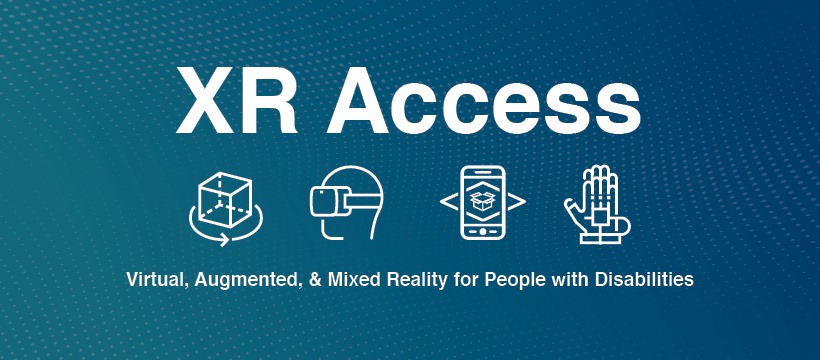
NSF Research Experience for Undergraduates:
Making Virtual and Augmented Reality Accessible
Summer 2021, held virtually
http://xraccess.org/reu/
Augmented and virtual reality (XR) technologies have become popular consumer products. But the devices, development and authoring tools, and content that make up the XR ecosystem pose barriers for people with disabilities. How can you present a 3D virtual environment to a person with a visual impairment? How should you provide captions in 3D to someone who is hard-of-hearing? How can a person with a motor control disability navigate a 3D world?
This REU site is led by Shiri Azenkot at Cornell Tech and Brian Smith at Columbia University, both experts in accessibility, along with Steven Feiner, an augmented reality and 3D interaction pioneer. They are recruiting students interested in XR accessibility who are looking to gain experience in the research process—from ideation to presentations—and who would like to join a community of scholars and practitioners who will provide career advice and mentorship.
Students will work on projects at the intersection of accessibility and AR/VR. Examples of possible projects include:
Enhancing the Accessibility of VR for Blind People with Environment Descriptions:
VR applications can be made more accessible to blind people with audio feedback from objects in the environment. How can we make this feedback more useful? In this project, students will prototype and test different types of audio description and feedback that might help blind people navigate VR environments.
Improving AR Interaction and Control:
With head-worn AR devices becoming mainstream, it’s important to understand how these devices can be used to help people interact with everyday virtual content when manual interaction isn’t possible. In this project, students will build on existing work that takes advantage of the precise head position and orientation available with current headsets to create more accessible and useful interaction techniques for AR.
Supporting Self-Directed Navigation within VR Environments:
Many navigation tools for people with visual impairments rely on turn-by-turn audio directions. But what about looking around and exploring VR environments on their own terms? This project aims to repurpose VR motion controllers into aids for self-directed navigation, providing ways to help users “look around” their environment.
In addition to working on research projects, students will participate in other informal learning and social activities. The program will begin with an XR development “boot camp,” which will help students get up to speed on useful techniques in XR content creation. Students will also attend weekly seminars and conversations with invited experts in academia and industry. Students will present their work formally at the midpoint and end of the program. In addition, the mentors will organize social events to build camaraderie, taking advantage of the rich culture of New York City.
Program Dates: June 1 – July 30, 2021
Application deadline: April 28, 2021
For eligibility and information on how to apply, visit: https://xraccess.org/reu/
Published on April 23rd, 2021Last updated on April 23rd, 2021

